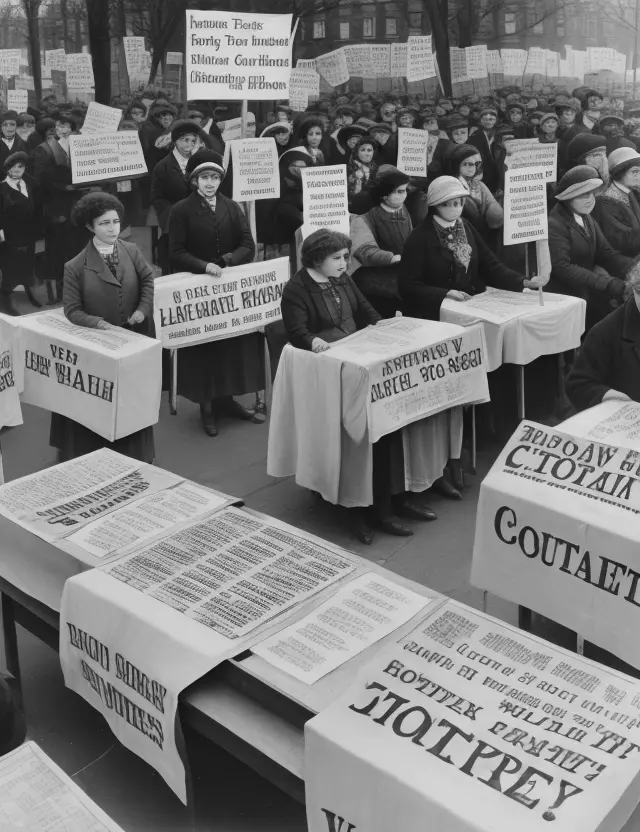Bread and Roses Strike: Advocating for Workers' Rights
January 12, 1912

Bread and Roses Strike: Advocating for Workers' Rights
On January 12, 1912, textile workers in Lawrence, Massachusetts, took a historic stand by initiating the Bread and Roses Strike. This pivotal labor movement was fueled by the workers' demand for better working conditions, fair treatment, and the recognition of their fundamental rights.
The Context of the Strike
The textile industry in Lawrence faced significant challenges, with workers enduring harsh conditions, long hours, and meager wages. Dissatisfaction among the labor force reached a tipping point, leading to the organized and determined efforts of the Bread and Roses Strike.
Workers' Demands
Central to the strike were the demands for a significant increase in wages, a reduction in working hours, and improved working conditions. The rallying cry, 'We want bread, but we want roses too,' encapsulated the workers' aspiration for not just the basic necessities of life but also a better quality of life and dignity in their work.
Unity and Solidarity
The Bread and Roses Strike showcased remarkable unity and solidarity among the diverse immigrant workforce in Lawrence. Workers from various ethnic backgrounds and communities came together, recognizing that their shared struggle for better conditions transcended cultural differences.
Response from Mill Owners
The strike faced resistance from mill owners, who sought to suppress the workers' demands. However, the resilience and determination of the striking workers drew attention and support from the broader public, including sympathetic individuals and organizations advocating for labor rights.
Legacy and Impact
The Bread and Roses Strike left a lasting legacy in the history of the labor movement. While the immediate gains were not fully realized, the strike laid the groundwork for future advancements in workers' rights and set a precedent for collective action in the face of labor injustices.
Reflecting on January 12, 1912
On this day, we reflect on the courage and determination of the textile workers in Lawrence who, through the Bread and Roses Strike, contributed to the ongoing struggle for fair labor practices and workers' rights.



